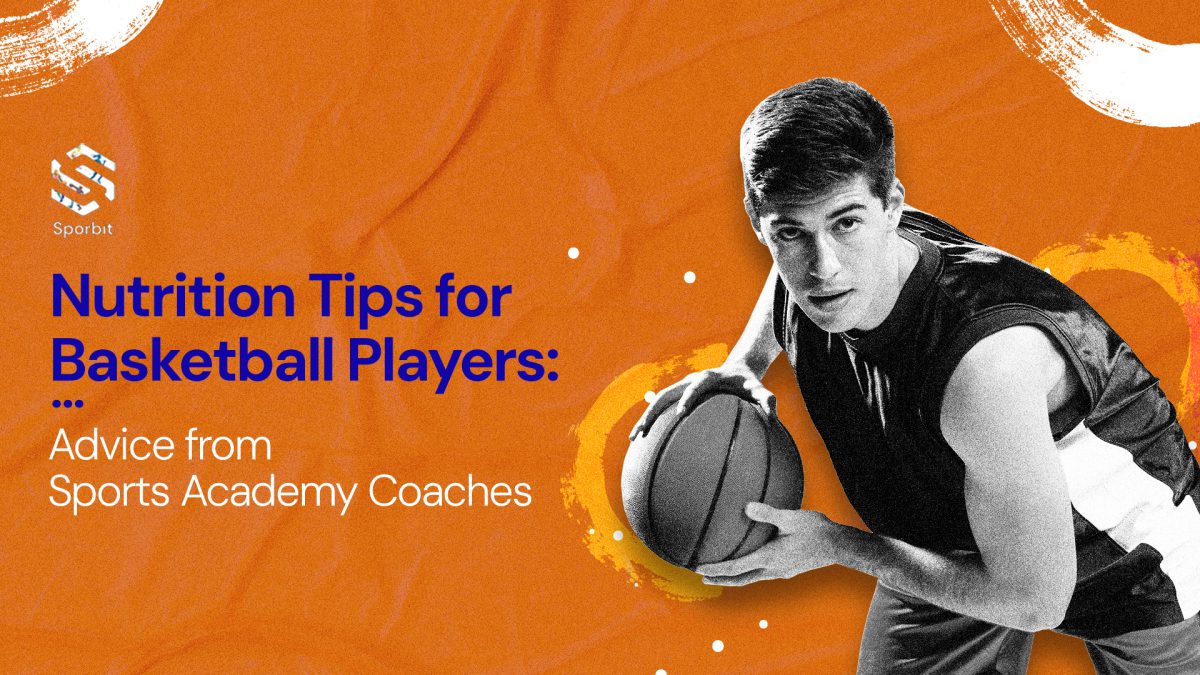Introduction
Basketball is a physically demanding sport that requires players to have a well-rounded approach to training and nutrition. While skill development and physical conditioning are crucial, proper nutrition plays a vital role in maximizing performance on the court. In this blog post, we will share valuable nutrition tips for basketball players, straight from the sports academy coaches.
1. Fuel Your Body with a Balanced Diet
A balanced diet is the foundation for optimal performance. Basketball players should focus on consuming nutrient-dense foods that provide the necessary energy, vitamins, and minerals. Include a variety of lean proteins, whole grains, fruits, vegetables, and healthy fats in your meals. Avoid highly processed foods and opt for whole, natural foods whenever possible.
2. Prioritize Hydration
Proper hydration is essential for basketball players to maintain their performance levels. Dehydration can lead to fatigue, muscle cramps, and decreased cognitive function. Drink water regularly throughout the day, especially before, during, and after practices and games. Sports drinks can be beneficial during intense workouts to replenish electrolytes lost through sweat.
3. Time Your Meals
Timing your meals properly can enhance your performance and recovery. Before a game or practice, aim for a pre-workout meal rich in carbohydrates for energy. Include lean proteins and healthy fats to promote satiety. Allow enough time for digestion, typically 2-3 hours, to avoid discomfort during physical activity. Afterward, consume a post-workout meal within 30-60 minutes to replenish glycogen stores and aid muscle recovery.
4. Pay Attention to Macronutrients
Properly balancing macronutrients is crucial for basketball players. Carbohydrates are the primary source of energy and should make up the majority of your diet. Opt for complex carbohydrates like whole grains, fruits, and vegetables, which provide sustained energy. Include lean proteins such as chicken, fish, beans, or tofu to support muscle repair and growth. Don’t forget healthy fats found in nuts, seeds, avocados, and olive oil, which aid in hormone production and joint health.
5. Snack Smart
Basketball players often need to refuel during intense training sessions or tournaments. Choose healthy snacks that provide a balance of macronutrients. Examples include Greek yogurt with fruit, a protein shake, nut butter with whole-grain crackers, or a homemade trail mix with nuts, seeds, and dried fruits.
6. Recovery Nutrition
Optimizing recovery is essential for basketball players to reduce muscle soreness and enhance performance in subsequent sessions. Consuming a combination of carbohydrates and proteins within the first hour after exercise helps replenish glycogen stores and aids in muscle repair. Chocolate milk, a turkey sandwich, or a smoothie with fruits and protein powder can be excellent recovery options.
Conclusion
Proper nutrition is a key component of a basketball player’s success. By fueling your body with a balanced diet, hydrating adequately, timing your meals strategically, paying attention to macronutrients, snacking smartly, and prioritizing recovery nutrition, you can optimize your performance on the basketball court. Remember to consult with a sports nutritionist for personalized advice based on your specific needs and goals.
FAQs.
Q1: What should basketball players eat before a game or practice?
A1: Before a game or practice, it’s important to consume a pre-workout meal that is rich in carbohydrates for energy. Include lean proteins and healthy fats to promote satiety. Some examples include a chicken and vegetable stir-fry with brown rice, a turkey sandwich on whole-grain bread, or a quinoa salad with grilled vegetables and tofu.
Q2: Is it necessary to drink sports drinks during basketball games?
A2: While water should be the primary fluid for hydration, sports drinks can be beneficial during intense workouts or prolonged periods of physical activity. Sports drinks contain electrolytes that help replenish what is lost through sweat. If you’re engaging in a high-intensity game or tournament, consider incorporating sports drinks in moderation to maintain electrolyte balance.
Q3: Are there any specific snacks that are best for basketball players?
A3: Yes! When it comes to snacks, aim for options that provide a balance of macronutrients. Greek yogurt with fruit, a protein shake, nut butter with whole-grain crackers, or a homemade trail mix with nuts, seeds, and dried fruits can be excellent choices for refueling during training sessions or tournaments.
Q4: How important is post-workout nutrition for basketball players?
A4: Post-workout nutrition is crucial for basketball players. Consuming a combination of carbohydrates and proteins within 30-60 minutes after exercise helps replenish glycogen stores and aids in muscle repair. Examples of post-workout snacks or meals include a chocolate milkshake, a turkey sandwich with whole-grain bread, or a smoothie with fruits and protein powder.
Q5: Should basketball players take supplements for improved performance?
A5: While a well-balanced diet should provide most of the necessary nutrients, some basketball players may consider supplements under the guidance of a sports nutritionist. Common supplements for athletes include protein powder, omega-3 fatty acids, and vitamin D. However, it’s important to remember that individual needs vary, and consulting a professional is key for personalized advice.
Q6: How can basketball players stay hydrated during games?
A6: Staying hydrated is crucial for optimal performance. Basketball players should drink water regularly throughout the day, especially before, during, and after practices and games. It’s essential to listen to your body’s thirst cues and drink enough to replenish fluids lost through sweat.




